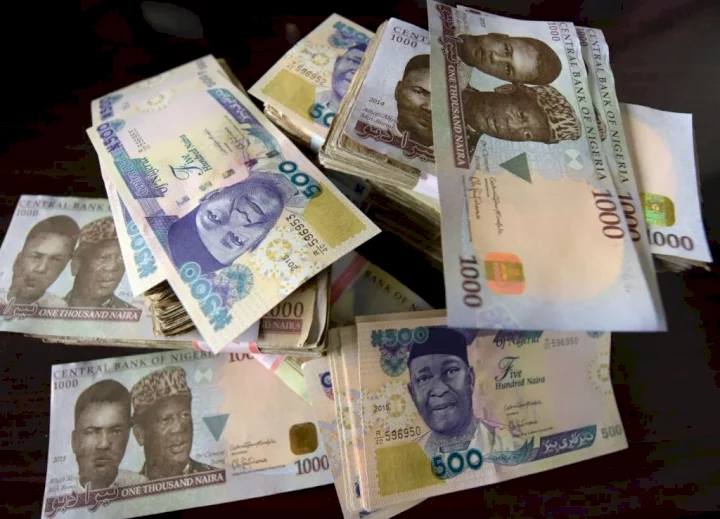
In the face of a record inflation rate, the Central Bank of Nigeria, CBN, within the week, announced the redesigning of Naira's higher denominations in a bid to take control of money in circulation.
The apex bank set January 31st as the deadline to phase out the existing N200, N500, and N1,000 notes out of circulation and replace them with new notes.
The CBN governor, Godwin Emefiele, while announcing the new policy, said over 85% of Naira notes are outside the vaults of the commercial banks. The CBN governor said specifically, out of the N3.23 trillion in circulation, over N2.27 are out of the vaults of the commercial banks.
"To be more specific, as at the end of September 2022, available data at the CBN indicate that N2.73 trillion out of the N3.23 trillion currency in circulation, was outside the vaults of Commercial Banks across the country; and supposedly held by the public," he said.
This situation takes away the power of the CBN to regulate money in circulation through monetary policy.
It would be recalled that the bank had raised the Cash Reserve Ratio from 22.5% to 32.5% in order to reduce money in circulation and curb inflation.
To curb inflation, the CBN uses monetary policies to regulate total money in circulation. By reducing the quantity of money in circulation, it helps to curb demand-push inflation, which is derived from the "more money chasing fewer goods" principle.
If truly over 85% of cash in circulation are outside the vault of the commercial banks, then the monetary policy of the bank may not be able to have the desired effect on inflation which stands above 23% as of September.
Aside from inflation, the other issue the CBN is trying to checkmate is the money in the hands of bandits sourced from ransom.
According to Emefiele "the bank is convinced that "the incidents of terrorism and kidnapping would be minimized as access to large volume of money outside the banking system used as source of funds for ransom payment will begin to dry up."
Section 20(3) gives the CBN the power to recall notes, subject to the approval of the president.
"Notwithstanding Sub-sections (1) and (2) of this section, the Bank shall have power, if directed to do so by the President and after giving reasonable notice in that behalf, to call in any of its notes or coins on payment of the face value thereof and any note or coin with respect to which a notice has been given under this Sub- section, shall, on the expiration of the notice, cease to be legal tender, but, subject to section 22 of this Act, shall be redeemed by the Bank upon demand.
Despite this power, the announcement by the CBN has generated mixed reactions. Many have taken to social media to reject the proposal by the CBN, stating that it will not address the inflationary pressure facing the country.
Some have also expressed fear that business outlets may start to reject the old Naira notes in anticipation of the deadline set by the bank.
The Minister of Finance, Zainab Ahmed, while appearing before the Senate Committee on Finance, kicked against the policy. Her position is that the timing is poor.
"As a Nigerian privileged to be at the top of Nigeria's fiscal management, the policy, as rolled out at this time, portends serious consequences on the value of Naira to other foreign currencies," she said.
Reno Omokri, a supporter of the main opposition candidate, Atiku Abubakar, had tweeted in support of the policy.
"The redesign of the Naira is a good idea. Kidnappers, bandits, and corrupt elements have stockpiles of Naira that they can't bank. This change will render their billions useless. The pound and dollar have been redesigned multiple times. On this, Emefiele did well!" He tweeted.
Experts opinion
Dr Musa Sabiu, an economist at the University of Abuja, disagreed with Mr Emefiele on the two main factors raised by the CBN governor. He argued that Nigeria's inflation is beyond monetary policy, noting that it is structural in nature.
"Money supply is a simple economic term. If there is too much money chasing a few goods, there will be inflation. But the problem of Nigeria's inflation is not a monetary problem, it is structural. Changing the money or reducing the money supply will not change anything because we have a large population and a very weak production capacity. Industries have been closing down and no electricity. The price of diesel that you use as an alternative for your industry has skyrocketed to almost N1000 per litre. How can you produce?" He queried.
Mr Sabiu also dismissed the argument that the policy will disrupt the hoarding of naira by criminals such as bandits, kidnappers, and terrorists.
"Who told you the criminals are keeping their money in Naira? This criminality you see-this banditry, armed robbery, kidnapping, Boko Haram is an organised international crime. Do you think ordinary Fulani illiterates can kidnap, organise ransom and get away with it? There is a better brain behind them. That is why the value of the naira continues to fall. People buy dollars not necessarily to import, but as a store of value and as a means to keep the proceeds of criminality. Who is keeping naira? Government is beating a dead horse," he said.
This position was also maintained by another economist at the Department of Economics, University of Abuja, Dr Masu Gombe.
He stated that the problem with inflation in Nigeria is not domestic because the country is more of an importer than an exporter, hence, the country is vulnerable to economic activities of other countries.
"If there is inflation in those countries, automatically, it will cause cost-push inflation in Nigeria," Dr Gombe said, adding that controlling inflation will only work when there is effective demand.
"Introducing this new policy, of course, you will control the supply of money, as you control the supply of money, it means that consumption will reduce- if consumption declines, this means production will reduce and employment will reduce as a result of laying off. This means you are mortgaging effective demand for autonomous consumption, that is catastrophe. This will lead to criminality," he said.
He argued that those who advised the president to take such action were being mischievous considering that the nation is at a transition point.
"Those who advised him in that context, left to me, they are mischievous. Because if you left it to him, he is not an economist, all those promoting this kind of thing, if you X-ray this policy, you will realise they are doing it for their own benefit, not in the interest of Nigerians," he said.
He explained that in the short run, the policy will have a negative impact on rural entrepreneurs and business people who have been involved in a cash-based economy. He added that it will also affect politicians, who may be stockpiling cash to distribute to supporters.
Indian policy of 2016
This latest policy by the CBN is similar to the 2016 "shock and awe" policy announced by Narendra Modi, the prime minister of India.
The Indian government had announced the withdrawal of 500 and 1,000 Rupees to curb black money.
The policy had caused a great deal of panic in India, as many dashed to banks to change the money. The chaos prompted some measures that created hardship for the people of India.
EFCC joins the party
The anti-graft agency, the Economic and Financial Crimes Commission has also announced that it will monitor illicit funds in the build-up to the phasing out.
The Chairman of the EFCC, AbdulRasheed Bawa, in a statement on Wednesday, endorsed the move by the CBN and warned Bureau De Change operatives to be careful of hoarders.
There is the risk that the involvement of the EFCC may create an extra bottleneck for people who will be seeking to swap the old notes for the new notes.
As it stands, it is not only experts that are divided on the policy, even within the government, opinions differ.

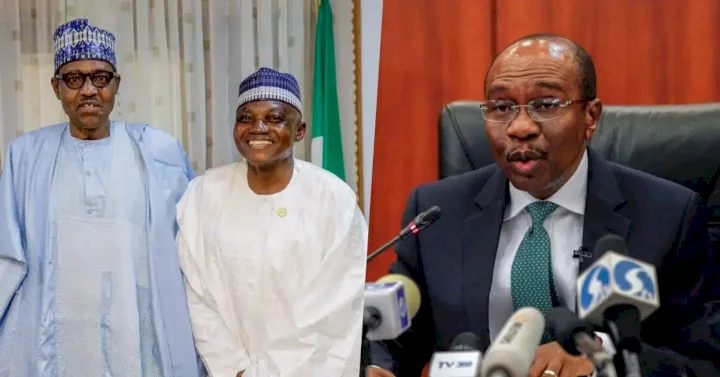
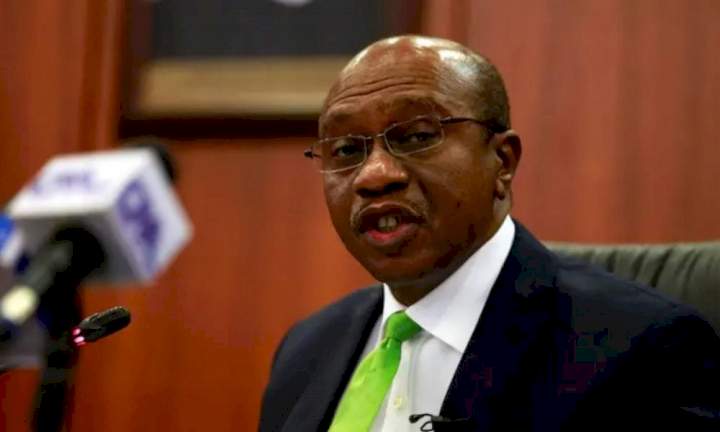
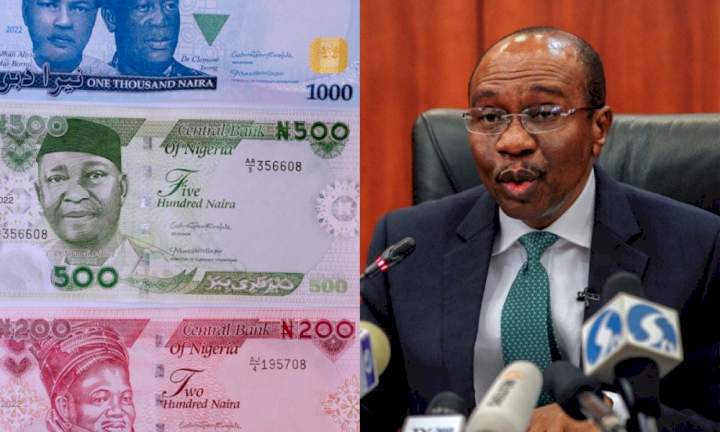
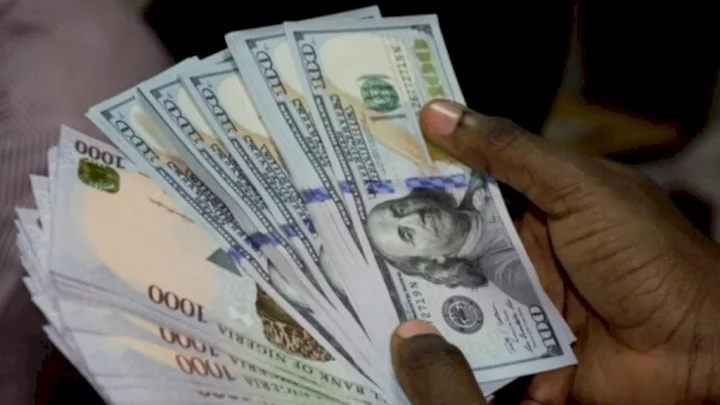
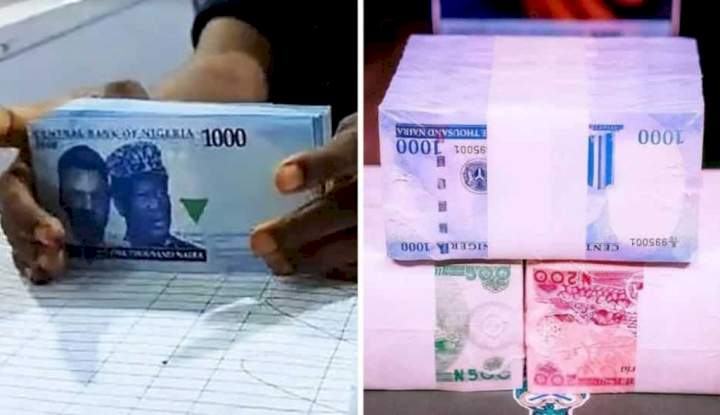
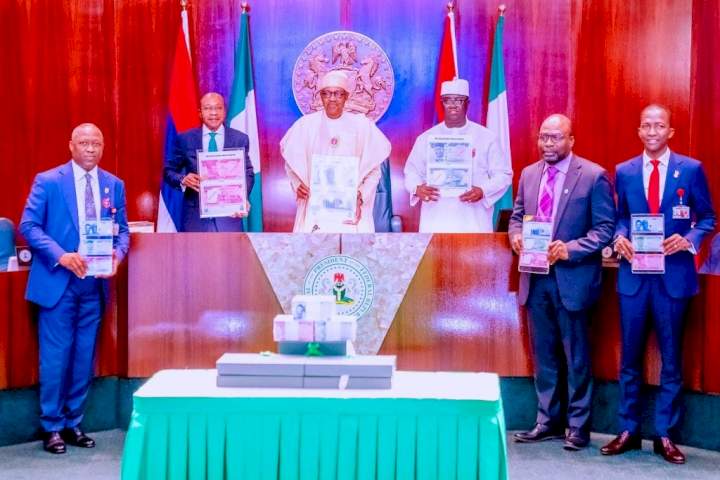

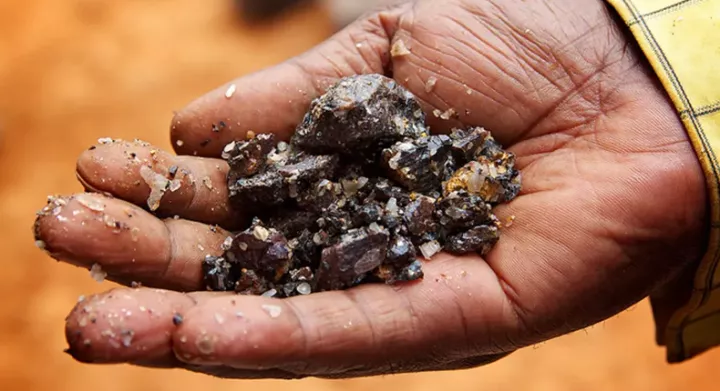




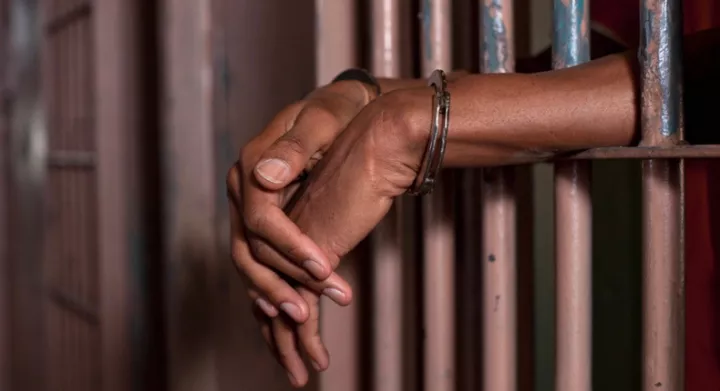


Comments